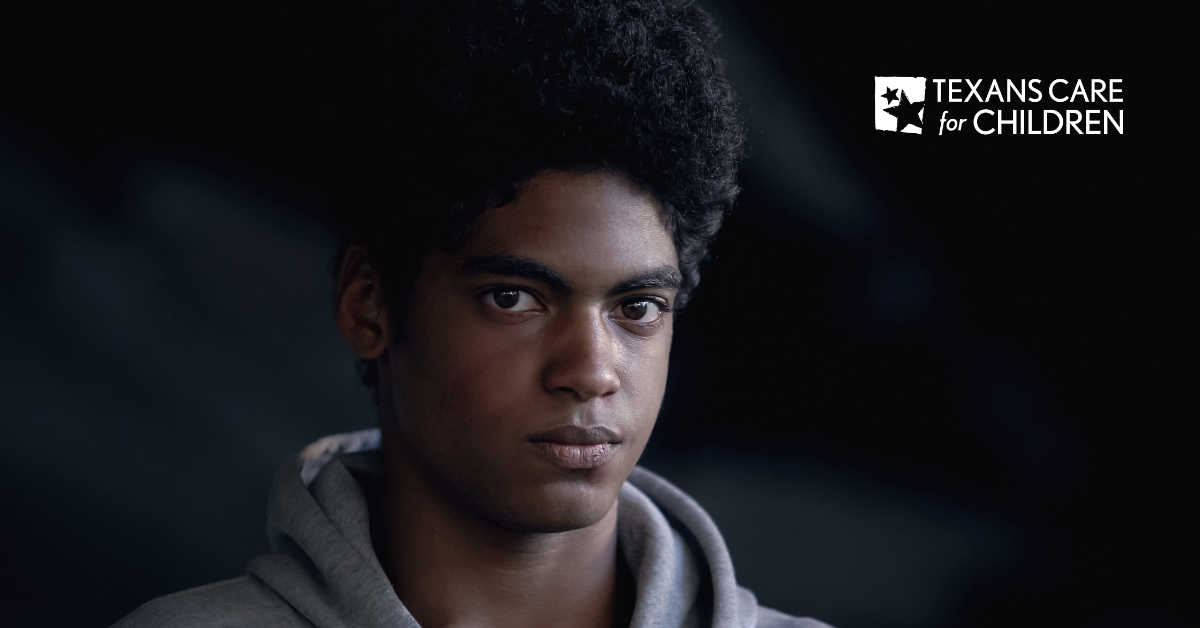
The state’s own Foster Care Ombudsman recently reported several challenges facing children in the Texas foster care system, adding to the picture that the court-appointed Monitors, the investigation into The Refuge in Bastrop, and other sources have revealed. The Legislature established the Ombudsman to serve as a neutral party in assisting children and youth in foster care with complaints regarding programs and services. The Ombudsman’s report also includes several recommendations and updates on the state’s progress in those areas. We’ve highlighted a few excerpts from the report below.
The findings underscore the importance of state leaders continuing to improve protections for children in foster care. For example, Texas must ensure that reports of abuse in foster care are handled as seriously as reports of abuse with biological families and develop supportive, family-like foster placements for children with complex needs. In addition to considering the Ombudsman’s recommendations to protect children in foster care, Texas leaders should continue to look to the recommendations issued by the Expert Panel in the foster care lawsuit for addressing these challenges. One of the Expert Panel recommendations that should be a priority during the 2023 legislative session is placing more children with their grandparents or other “kinship care” providers rather than placing them with strangers in foster care or in group facilities when it’s not appropriate.
The instability and trauma children experience in foster care highlighted in the Ombudsman report also serves as a reminder that policymakers should focus on keeping more children with their own families and out of foster care — when it can be done safely. To reach this goal, legislators should support DFPS Prevention and Intervention, Family Based Support Services for families at risk of having their children removed by CPS, substance use or mental health treatment for parents, mental health services for children with complex needs outside of foster care, and more. Our recent memo to state leaders describes how Texas can implement the Expert Panel recommendations in ways that strengthen these efforts. In particular, the Legislature should leverage the Family First Prevention Services Act (FFPSA) — by expanding eligibility for FFPSA-covered services and investing state funding in them — to keep more children safely out of foster care.
We appreciate the steps that DFPS, legislators, and providers are taking to address many of these challenges, and we look forward to continuing to work with them.
Excerpts of the December 2021 Report of the Ombudsman for Children and Youth in Foster Care
FCO [Foster Care Ombudsman] review of cases found instances where caseworkers failed to report allegations of abuse and neglect of foster children placed in licensed and unlicensed placements. Instead, youths’ primary caseworkers or caseworkers caring for youth instructed children to contact the FCO to convey alleged abuse, neglect, and minimum standards concerns. In these instances, FCO found none of the caseworkers assisted the youth with calling the abuse hotline. As a result, the FCO contacted SWI [DFPS Statewide Intake] with the children to report the allegations.
In the 15 cases referred to CCI [DFPS Child Care Investigation] by FCO this fiscal year, five cases were not completed within the timeframes set by CCI policy, and only one of those had an approved extension.
FCO found instances where complaints in CCI transferred cases were not fully addressed by RCCR [HHSC Residential Child Care Regulation]. In one example, FCO found that serious incident reports (SIR) documented in the CCI investigation were not documented per minimum standard guidelines in RCCR’s investigation.
Although DFPS investigates cases of abuse and neglect reported by youth placed in an unlicensed placement, no policy or process exists to investigate alleged violations of the child or youth’s rights or staff conduct….OCR [DFPS Office of Consumer Relations] informed FCO that there is no process to address potential rights violations for youth in unlicensed placements. OCR began sending these complaints to the CPS [DFPS Child Protective Services] regional supervisor to investigate and address with CPS staff.
CCI Handbook Policy 6422.11 requires the investigator to inform the alleged perpetrator of the complaints or allegations made against them at the first contact with the investigator. In several cases, FCO found that Policy 6422.11 was not being followed by CCI investigators when investigators failed to ask caregivers about specific allegations related to:
- an interaction involving a youth and violation of personal space within their sleeping quarters;
- failing to provide care during a reaction to a medication; and
- physical assault, because the allegation was not included in the original intake.



